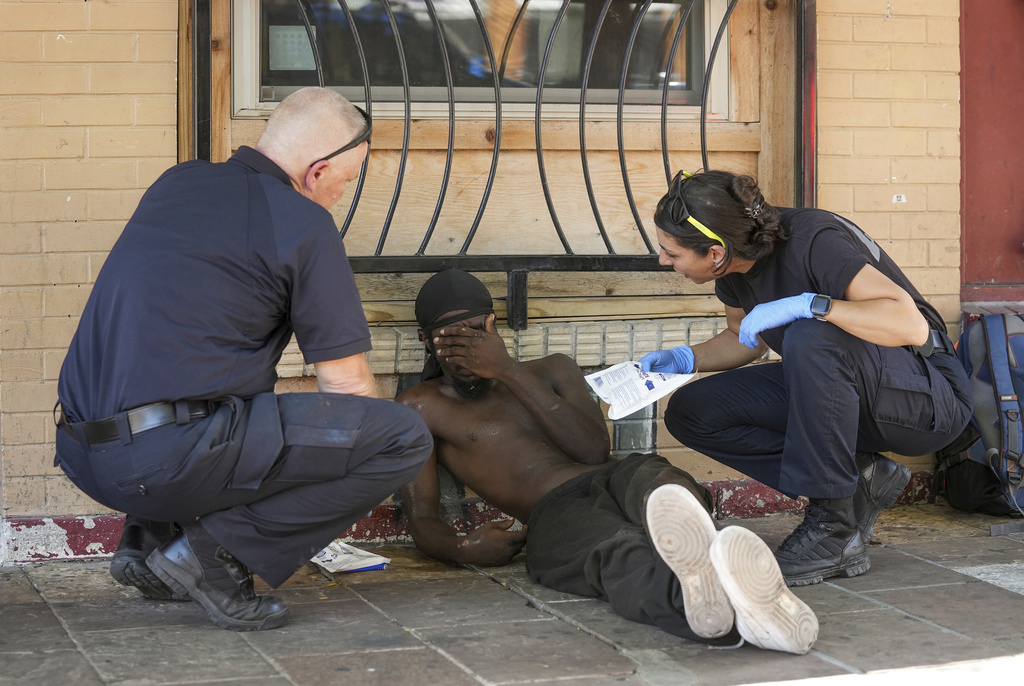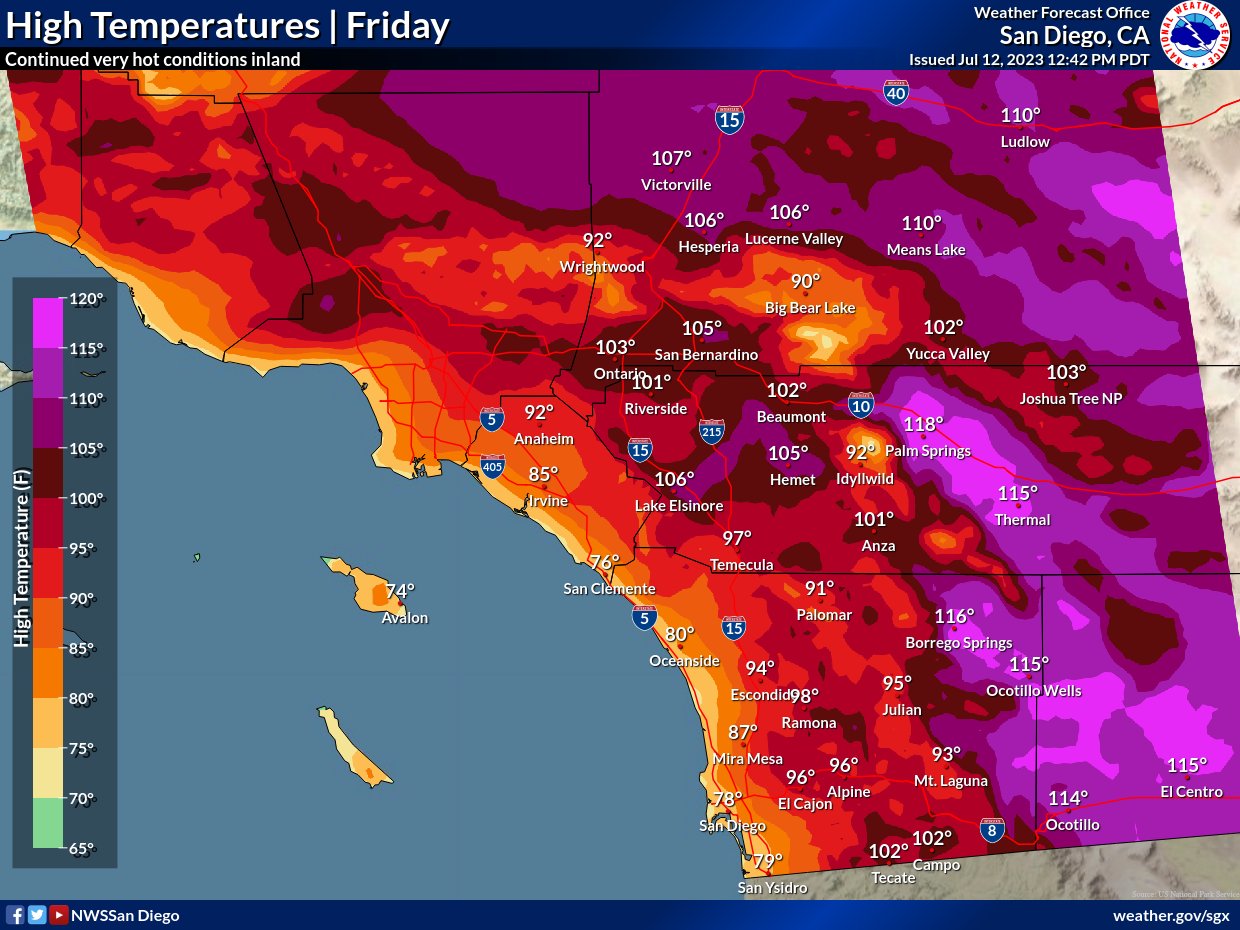It’s been super-hot in many locations and summer is not even half over.
NOAA recorded water temperatures around Florida of 98 degrees on Wednesday near the Everglades and 97 degrees on Tuesday near the Florida Keys, while some forecasters are predicting near world record level temperatures in Death Valley of around 130 degrees this weekend. (AP)
WHO’S AT RISK?
More than 600 people in this country die every year from heat-related illnesses, according to the Centers for Disease Control and Prevention (CDC).
Some people are more at risk of developing a heat-related illness, including adults over 65, those with chronic medical conditions, people who work outside, infants and children, and athletes. Some may take medications that make the effects of extreme heat worse. People with heart disease, poor blood circulation, obesity and mental illness are also at risk for getting sick if the temperatures climb.
HEAT SAFETY TIPS from the Red Cross
- Hot cars can be deadly. Never leave children or pets in your vehicle. The inside temperature of the car can quickly reach 120 degrees.
- Stay hydrated by drinking plenty of fluids. Avoid drinks with caffeine or alcohol.
- Check on family, friends and neighbors who do not have air conditioning, who spend much of their time alone or who are more likely to be affected by the heat.
- If you don’t have air conditioning, seek relief from the heat during the warmest part of the day in places like schools, libraries, theaters, malls, etc.
- Avoid extreme temperature changes.
- Wear loose-fitting, lightweight, light-colored clothing. Avoid dark colors because they absorb the sun’s rays.
- Slow down, stay indoors and avoid strenuous exercise during the hottest part of the day.
- Postpone outdoor games and activities.
- Take frequent breaks and use a buddy system when working outdoors.
- Check on animals frequently to ensure that they are not suffering from the heat. Make sure they have plenty of cool water and shade.
Excessive heat can lead to sunburn, heat cramps, heat exhaustion and heat stroke. If someone is experiencing heat cramps in the legs or abdomen, get them to a cooler place, have them rest, lightly stretch the affected muscle, and replenish their fluids with a half a glass (about 4 ounces) of cool water every 15 minutes.
If someone is exhibiting signs of heat exhaustion (cool, moist, pale or flushed skin, heavy sweating, headache, nausea, dizziness, weakness and exhaustion), move them to a cooler place, remove or loosen tight clothing and spray the person with water or apply cool, wet cloths or towels to the skin. Fan the person. If they are conscious, give small amounts of cool water to drink. Make sure the person drinks slowly. Watch for changes in condition. If the person refuses water, vomits or begins to lose consciousness, call 911.

HEAT STROKE LIFE-THREATENING
Heat stroke usually occurs by ignoring the signals of heat exhaustion. Heat stroke develops when the body systems are overwhelmed by heat and begin to stop functioning. Signs include hot, red skin which may be dry or moist; changes in consciousness; vomiting and high body temperature. Call 911 immediately if someone shows signs of heat stroke. Move the person to a cooler place. Quickly cool the person’s body by immersing them up to their neck in cold water if possible. Otherwise, douse or spray the person with cold water, or cover the person with cold, wet towels or bags of ice.
Home Heat Safety Ideas from ServiceMaster Restore
Heat waves drive urban dwellers to turn on the air conditioning. The summer’s high demand for air conditioning taxes the energy systems that provide electrical power, leading to the likelihood of random power failures and, consequently, scattered blackouts throughout major cities.
When there’s a heat wave, it’s important to take the necessary actions to prevent a power outage. According to ServiceMaster Restore, the following are a few easy ways to not only prevent power outages but to stay cool as well:
- Turn any unnecessary lights, devices, and appliances off.
- Close all blinds, curtains, and shades to prevent unwanted heat from coming into your property.
- Make sure no air ducts or fans are blocked by furniture so that cool air can properly circulate throughout your property.
- If you need to use them, run your dishwasher, oven, and other heat-producing appliances during the night because it’s cooler at this time.
If a power outage does happen during a heat wave, ServiceMaster recommends that you:
- Prioritize safety and make sure to remain hydrated and cool to prevent suffering from any heat-induced health problems.
- To remain cool, keep doors, windows, blinds, shades, and curtains closed.
- Do your best to not let outside air into your property
Here's on example:

